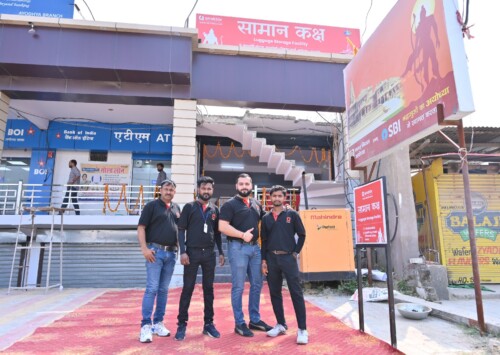Farm-to-table meal kits: Redefining urban dining
Rise of locally sourced meal kits in India

Purchasing ingredients directly from nearby farms ensures freshness, quality and a lower carbon footprint (Photo: Canva)
Farm-to-table meal kits, which prioritise sustainability and local sourcing, are revolutionising India's culinary landscape. Although there are difficulties in preserving freshness during delivery, this trend is in line with conventional methods, helping out local farmers and lowering carbon footprints.

Purchasing ingredients directly from nearby farms ensures freshness, quality and a lower carbon footprint (Photo: Canva)
The culinary industry is undergoing a quiet revolution right in the middle of busy cities across India. The way people in the country view food has changed significantly in recent years, especially with the popularity of do-it-yourself meal kits. In addition to offering a creative way to cook at home, these kits also provide a sustainable substitute for conventional dining options. However, by focussing on locally sourced ingredients and lowering the carbon footprint related to food production and delivery, the idea of farm-to-table meal kits goes beyond this trend.
Purchasing ingredients directly from nearby farms ensures freshness, quality and a lower carbon footprint. Using ingredients that are sourced locally is the focus of the farm-to-table movement, which has been gaining popularity all over the world. This idea fits in nicely with India’s long-standing tradition of eating fresh produce.
“Although I have always loved to cook, my kitchen has become a centre for sustainability and creativity ever since I learnt about farm-to-table meal kits. In addition to improving the taste of my food, knowing that the ingredients are sourced directly from nearby farmers makes me feel good about helping out my community. It is incredible how something as basic as a meal kit can improve our environment and unite people,” Neha Tiwari, a 35-year-old home-maker in Dwarka, New Delhi, tells Media India Group.
Also Read: 1 billion meals wasted daily in 2022: UNEP
Fresh milk and dairy products are provided by milkmen, or local dairy vendors, who have long been an essential part of the community in India. “The farm-to-table concept resonates deeply with our traditional practices,” a local milkman, who preferred anonymity, tells Media India Group.
“Providing our customers with the freshest products has always been our philosophy. I know first-hand how crucial it is to support local farmers because I am a milkman. In addition to obtaining the best produce, we are also supporting their livelihoods by purchasing ingredients directly from them. Mutual benefit and trust are the foundations of this relationship,” he says.
The emphasis on sustainability is one of the main benefits of farm-to-table meal kits. These kits contribute to a more ecologically friendly food system by lowering emissions and transportation costs by obtaining ingredients from nearby farmers.
The milkman also notes that the farm-to-table movement is about community, not just food.
“A stronger, more cohesive community is created when people decide to use meal kits to support local farmers. Our work is centred around sustainability. We lessen our carbon footprint by cutting out middlemen and emphasising local sourcing. Preserving the quality of our products is just as important as protecting the environment. Purchasing locally gives you the best quality, and freshness is important,” he adds.
“I assess each client’s health goals, dietary needs, preferences, and lifestyle. And monitor them on a daily basis. Based on that, I design meal kits with the right macronutrient balance, preferred ingredients, and suitable prep time ensuring the meals are both effective and enjoyable,” Diksha Deepak, Nutritionist Intern, Yashoda Hospital in New Delhi, tells Media India Group.
Also Read: From Kashmir to Tamil Nadu: 5 hidden culinary gems of India
Nevertheless, there are difficulties in putting farm-to-table meal kits into practice in India. It can be difficult and expensive to source and deliver fresh ingredients across different regions. “Preserving the ingredients’ freshness while in transit is the largest challenge. To guarantee that the produce reaches consumers in optimal condition, a well-structured supply chain is necessary,” says the milkman.
Farm-to-table meal kits present a promising answer as India continues to grapple with the issues of sustainable dining. These kits can help create a healthier food ecosystem by utilising local produce and cutting down on waste.
“Sustainable practices lead to fresher, more nutrient-rich food. Locally sourced ingredients in farm-to-table meal kits are harvested at peak ripeness, which boosts flavour and nutritional value. Plus, they support seasonal eating and reduce the need for preservatives—making meals healthier and more natural,” Deepak adds.









